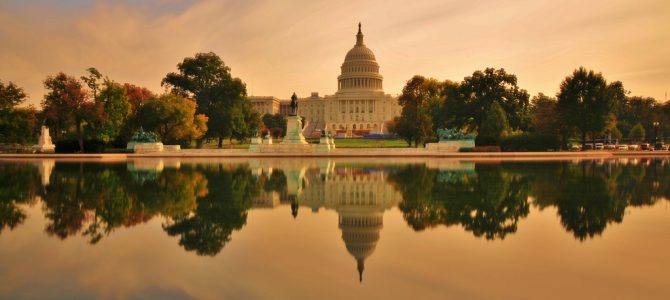
Congressional failure to preserve its powers has dangerously concentrated power in the single person of the president. Outsiders have raised the alarm for decades, but it has finally broken through to Congress. Sen. Mike Lee’s Article I Project and the House Republican Conference’s adoption of related language shows that Congress’ preeminent place in Article I of the Constitution is going mainstream. House and Senate Budget Committee reform proposals explicitly seek to restore congressional primacy.
Yet party platforms, campaign promises, and other ambitious plans often become inconvenient when it comes time to govern. Fortunately, President Trump can help Congress get back on track.
Concerns about an imperial presidency have existed since America’s founding. Nearly every president has pushed the boundaries, yet President Obama made executive overreach a core strategy for bypassing that inconvenient branch—Congress—in which “all legislative Powers herein granted shall be vested.” Happily for our constitutional order, the courts have sometimes blocked his pen-and-phone usurpations when Congress could not.
President Trump, however, can help restore balance and empower Congress to legislate specific solutions to problems facing the American people. How could he do such a thing?
Trump’s Power Is Bigger than the Veto
Most fundamentally, he could veto problematic legislation. He could veto bills that create or reauthorize broad executive discretion, rely on budget trickery, or conflict with the Constitution. He could veto appropriations measures that fund too many programs lacking authorization. He could even veto legislation that includes too many unrelated topics and request that Congress send him smaller bills, perhaps even one subject at a time.
But he could also take the initiative and set the agenda. The Constitution’s Article II, Section 3 empowers him to “recommend to [Congress’] Consideration such Measures as he shall deem necessary and expedient.” President Trump has the power to send reform proposals, including legislative text, directly to Congress for review, and he can use the microphone—and Twitter—to advocate for them.
The White House can write one or more immigration reform bills. It could propose reauthorizing, reforming, streamlining, and consolidating programs in any department or agency. A high priority for Trump’s new approach to foreign policy might be a State Department that can make deals and otherwise assert American national interests without being so dependent on military force.
Naturally, only Congress may pass legislation, and it has much of the technical, political, and policy expertise to advance statutory initiatives. Over the decades, however, it has approved many well-intentioned but flawed statutes. President Trump can propose fixing them. Some only need technical corrections. Much deadwood—old laws that are no longer authorized or funded—needs to be cleared out. Significant reforms and repeals are also appropriate.
It’s Time to End the Autopilot
President Trump could even wade into congressional organization. The budget process is clearly broken, and interest in making it work again is high. Some have even suggested dissolving the appropriations committees and empowering the policy committees to fund programs in addition to designing them. Maybe then members could take credit for substantive modernization and reauthorization of vital programs instead of passing largely symbolic legislation while almost everything important runs on autopilot.
Setting the rules for each house of Congress is the sole power of that chamber, but presidential leadership could help forge consensus and advance reforms that require coordination between the House and the Senate.
Attempting to dictate from 1600 Pennsylvania Avenue isn’t going to work, of course. Members of Congress have their own constituencies, priorities, and insights, not to mention dignity. Legislators bear the responsibility for cultivating statutory law. Partnering with reformist elements in Congress can be a powerful tool for the administration to improve our country’s governance.
Some might say that no president, including President Trump, would leverage the process to shift power from the executive branch back to the legislative branch. Most people don’t try to reduce their influence. But patriots set aside temporary advantage for the public good, and presidents want to leave behind a lasting legacy.
The ultimate legacy would be repairing the institutions of government themselves. After all, only a constitutional republic with representatives who are accountable to the people can sustain a balanced, healthy political order. If President Trump wants to make American greater than it’s ever been, he must work to restore the republic. That restoration—an American Renaissance—requires returning Congress to its proper role.








